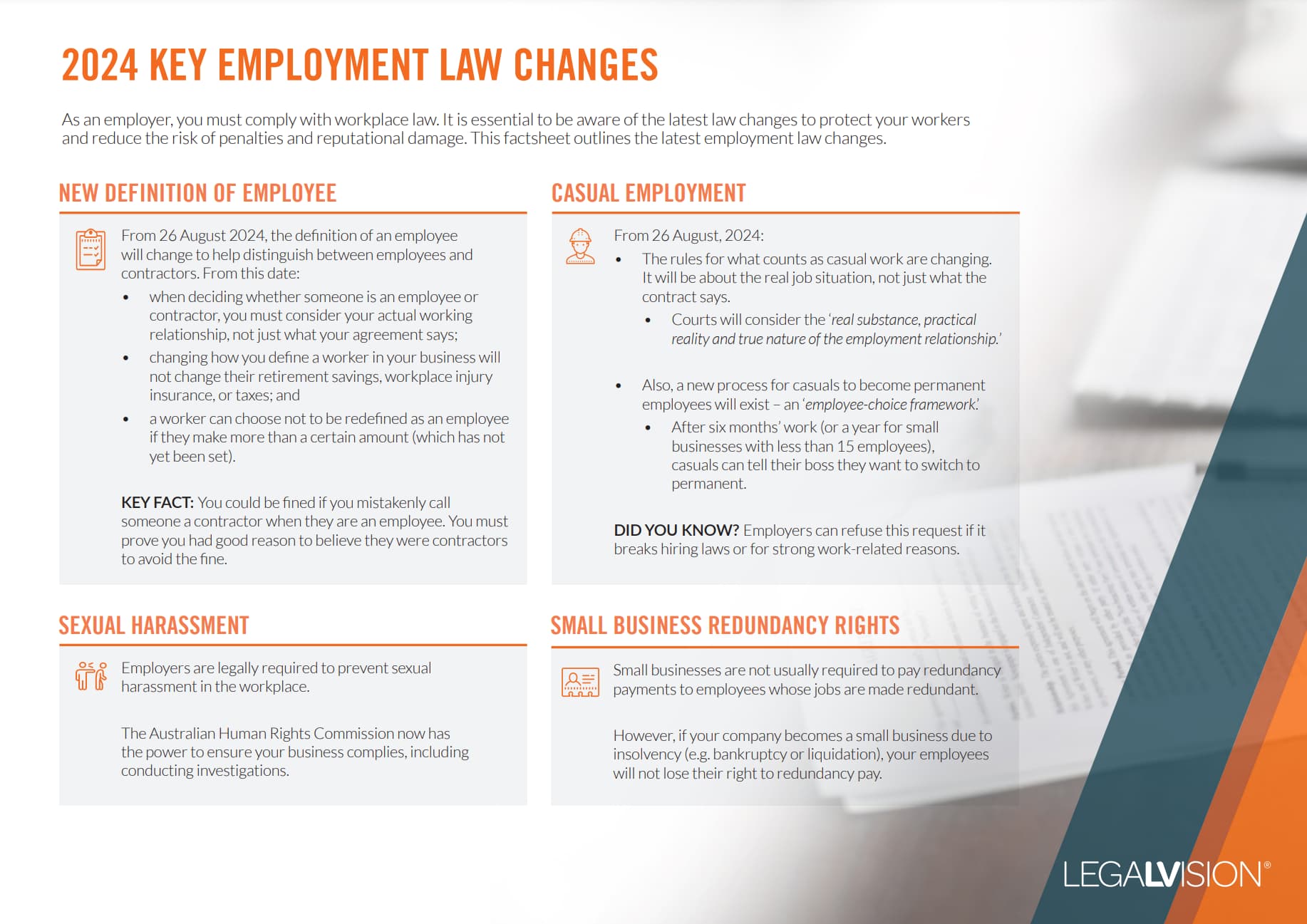As an employer, you might currently have an Enterprise Bargaining Agreement (EBA) in place, or you might be considering starting the negotiation process with your employees. An EBA can be quite detailed, and it must include specific mandatory terms, such as dispute resolution procedures and a nominal expiry date. A nominal expiry date cannot exceed four years from the approval date by the Fair Work Commission. Ensuring compliance with the Fair Work Act when terminating or amending the existing agreement or proposed agreement is essential. This article will delve into the mandatory terms and offer guidance on the process of ending or amending an Enterprise Bargaining Agreement.
Terminating an EBA by Agreement
Even if you have not reached the nominal period, you can still terminate an EBA at any time. However, this requires agreement from all parties involved. Usually, you reach this agreement through a secret ballot. You must publicise the vote to all affected employees and specify the time, location, and procedure. A majority vote is necessary to approve the termination of the EBA.
After the Nominal Expiry Date
After the nominal expiry date of an EBA, either party can start renegotiating or agree to terminate the agreement. Recent changes in the law, under the Fair Work Legislation Amendment (Secure Jobs, Better Pay) Act 2022, have broadened the Fair Work Commission’s authority to terminate and modify EBAs where necessary.
If the agreement is still in effect within the nominal period, can you make changes to it or terminate the agreement? Several factors determine whether you can alter or terminate an EBA.
Call 1300 544 755 for urgent assistance.
Otherwise, complete this form, and we will contact you within one business day.
Individual Flexibility Arrangement
An Individual Flexibility Arrangement (IFA) does not mean terminating the EBA. However, every EBA must have a clause enabling both you and your employee to implement an IFA. This arrangement can adjust the terms and conditions of the EBA. Both you and your employee need to agree to it genuinely, and like the EBA, it also must pass the “better off overall” test.
Variation
You and your team have the power to amend an Enterprise Bargaining Agreement (EBA) when necessary. However, keep in mind that the Fair Work Commission needs to approve these changes. You must ensure that the vote endorses the variation and is submitted within 14 days. If there’s any confusion, you can also request the Fair Work Commission to review a variation.

As an employer, it is essential to understand what employment laws have changed and their implications for your business — particularly the changes to the Fair Work Act 2009 through the new Closing the Loopholes legislation.
Key Takeaways
You, as the employer, can end an Enterprise Bargaining Agreement (EBA) whenever all parties involved agree. This process involves holding a secret ballot where a majority vote is necessary. Afterwards, you need to submit the required forms to the Fair Work Commission within 14 days. Once the nominal expiry date passes, either party can start the termination process, which the Fair Work Commission will review.
Individual Flexibility Arrangements (IFAs) allow flexibility within EBAs, but both you and your employees must genuinely agree to them. Any changes to an EBA require approval from the Fair Work Commission, which can happen through a majority vote or a request for a variation assessment. These insights give you a guide for effectively managing the end or modification of an Enterprise Bargaining Agreement.
If you are an employer experiencing a transition in your enterprise and looking to change your Enterprise Bargaining Agreement, our experienced employment lawyers can assist as part of our LegalVision membership. For a low monthly fee, you will have unlimited access to lawyers to answer your questions and draft and review your documents. Call us today on 1300 544 755 or visit our membership page.
We appreciate your feedback – your submission has been successfully received.












